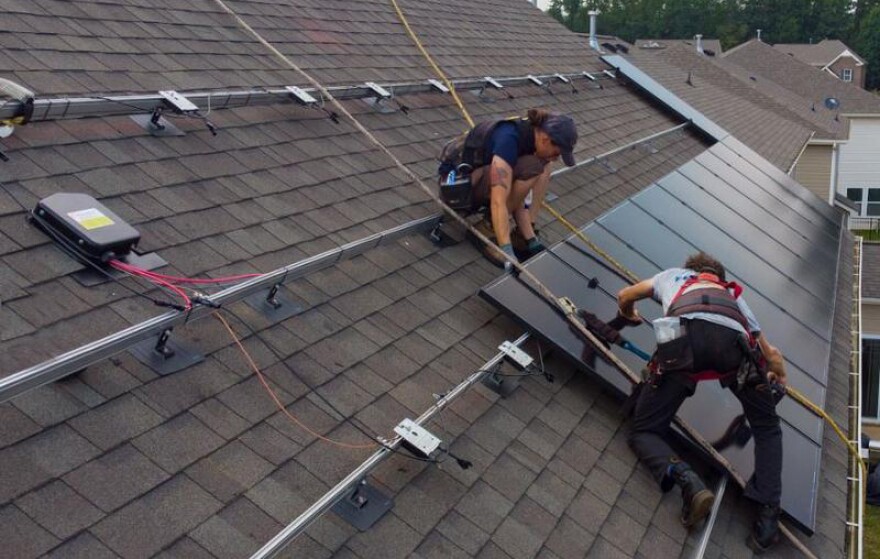Duke Energy has awarded the final rebates in a five-year, $62 million program to boost rooftop solar installations in North Carolina.
The program was required by a 2017 state law and was supposed to end last summer. But about $1.3 million was left over, so Duke held a final lottery this month.
The program has been extremely popular, and has not come close to meeting demand.
This year's rebates went to 356 customers statewide — most of them are residential property owners. Another 2,900 customers are on a waiting list, though most are unlikely to get the rebates, which are worth up to $4,000 for homeowners and $30,000 for businesses.
A spokesman says Duke Energy is currently not planning any additional rebates, but it is studying other ways to promote renewable energy.
"There's nothing immediate now, although we are looking for ways to have new solar programs to promote renewable energy in North Carolina," spokesman Randy Wheeless said.
Duke Energy also has proposed major changes in the way rooftop solar owners are compensated for energy they end to the electric grid. The so-called "net-metering" changes would reduce payments to solar owners and add a monthly fee for any customers who install solar panels.







